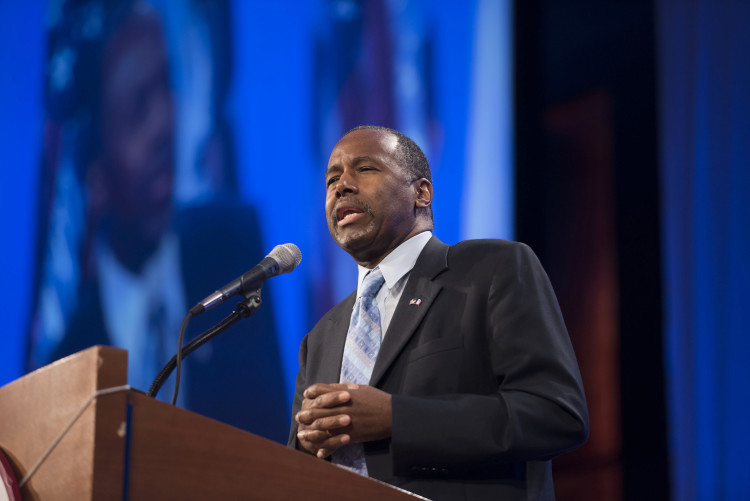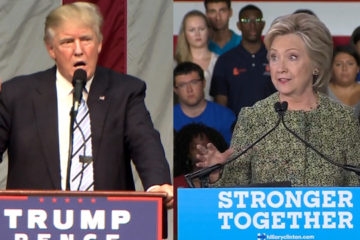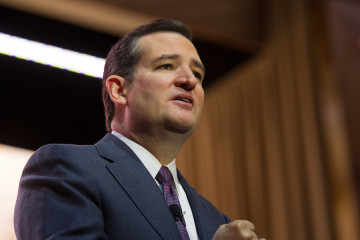One Question to Make Debates Worthwhile: Stephen L. Carter

©2015 Bloomberg View
NW4JMU6JTSED
(Bloomberg View) — There’s a question that won’t be asked in Tuesday night’s Democratic presidential “debate” — it’s never asked — but we’d all be better served should the moderator offer it up. If and when the stage gets small enough, the same challenge could be tossed to the Republican candidates. The question I have in mind is, in a sense, the only one that matters — a question that helps us figure out whether each aspirant wants to be leader of a party or president of a country.
I’ll get to that pivotal question in a moment. First, let me deal with the other thing that’s probably irking you: the reason I put the word “debate” in quotation marks.
Presidential debates are an excellent idea. But we don’t have them. What we have is a ridiculous stage show, in which reporters come up with questions and the time limits make it impossible for anybody to give a serious answer. Candidates have no opportunity to persuade us; all they can do is rattle off canned paragraphs of varying vacuity.
I’ve argued before that serious candidates should boycott the debates. I believe it still. An actual debate would allow the speakers to try to explain their positions on complex issues. In my experience, our most divisive issues tend to divide precisely because they’re difficult. But the time limits under contemporary rules don’t allow candidates to treat difficult questions with the seriousness they deserve. Instead, they are able at best to impress us with their glibness.
Abraham Lincoln and Stephen Douglas, in their 1858 debates, were able to hold the stage for an hour apiece — not counting the half-hour left for rebuttal. Okay, those days are gone forever. But the current format basically allows the candidates a choice between tossing red meat to the base, offering their vacuous verities or committing gaffes. And it’s only those gaffes (or what devoid of context sounds like a gaffe) that voters who don’t watch the entire debate will likely ever see.
Maybe the debates don’t matter. Just in case they do, however, we should at least treat presidential elections with the solemnity granted to high school debates, where a speaker typically has eight minutes to defend a position. Nowadays, we’d likely dismiss as long-winded a candidate who needed that long. Such is the parlous process through which we select the leader of the executive department of the most powerful nation on earth.
It’s unlikely that the changes reflect a difference in the quality of the electorate. There is little evidence that 19th- century voters were more politically sophisticated than today’s. Some critics tie the short length of answers to the polarization of the electorate — particularly in primaries — although even if the critics are right, it’s hard to tell cause from effect.
More than 20 years ago, the columnist Mary McGrory suggested that the problem was not the debaters but the questioners — a criticism that has often been repeated since. Moderating a debate, she wrote, brought out “a lamentable tendency on the part of reporters to bask in the klieg lights, to ham, to preen while 60 million ordinary people look on.” She suggested getting the candidates “into a room together,” without a moderator. (She didn’t say whether there would be an audience.)
Any number of reforms have been suggested, from abolishing the debates, to turning the questioning over to a panel of nonpartisan experts (if such creatures exist), to replacing the current format with an unusual version of a television game show. (No joke; the 2007 proposal, from the economist Alex Tabarrok, is actually quite intriguing.) Maybe we’d be better off if candidates abandoned their refusal to answer hypothetical questions. Certainly there has to be more to the picking of a president than the candidate’s fluency with quips and one- liners.
But change, alas, is unlikely, and the greatest obstacle to fixing our debate system is neither the news media nor our short attention spans. It’s the candidates themselves. As communications professor Sidney Kraus reminds us in his analysis of the presidential debates, it’s wrong to say that the format is forced upon the candidates. Their campaigns are actively involved in the negotiations. And what about those short time limits? Writes Kraus: “Candidates are not interested in educating the public or in arriving at truth, but in winningthe election.”
In other words, the structure of the debate isn’t likely to change any time soon. So how can we bring some meaning to the ridiculous event we’re about to stage? Let’s go back to where we started — with a question that should always be asked but never is: “Can you name three important issues on which your party’s base is absolutely wrong?”
The question has several virtues: First, it lets us see who’s willing to be a leader and who’s essentially a follower. Evasion would sound craven. Second, it invites the candidate to show courage in front of an audience where many are likely to be angered by the answer. Third, although here argument matters, it matters less than on other issues, because the point is to see whether those who seek high office are willing to differentiate themselves from the most polarized voters. Those who can’t give a good answer are as much as telling us that they intend to run the executive branch according to the views of a minority.
Of course I’d rather give the candidates more time than give them better questions. But better questions may be the best we can do.
This column does not necessarily reflect the opinion of the editorial board or Bloomberg LP and its owners.
To contact the author of this story: Stephen L Carter at scarter01@bloomberg.net To contact the editor responsible for this story: Stacey Shick at sshick@bloomberg.net
For more columns from Bloomberg View, visit http://www.bloomberg.com/view





No Comment